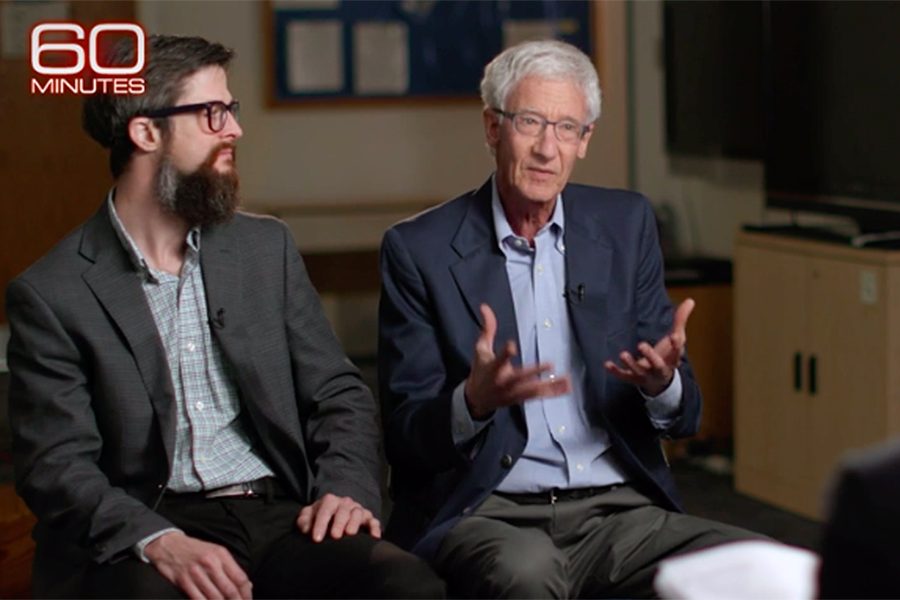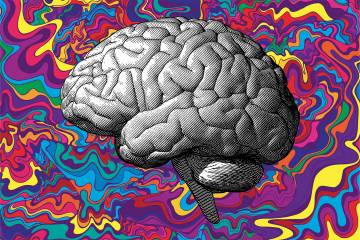Scientists at Johns Hopkins are exploring a promising new branch of behavioral research: the effect of psychedelics on the brain. Led by Roland Griffiths, a professor of psychiatry and behavioral science, researchers at Johns Hopkins have discovered that psychedelic drugs—including psilocybin, the active compound in "magic mushrooms"—have been shown to improve the quality of life for patients with life-threatening cancer, help longtime smokers quit, and help patients overcome persistent depression.
In a segment that aired Sunday night on 60 Minutes, Griffiths and his colleague Matthew Johnson discussed the nature of their work with CBS correspondent Anderson Cooper, who also interviewed two of their volunteer test subjects.
One of those test subjects, Carine McLaughlin, was able to quit smoking after 46 years after she participated in a psilocybin trial at Johns Hopkins for an ongoing study. To achieve her goal, however, she had to endure a harrowing experience inside her own mind.
"The entire time, other than the very end and the very beginning, I was crying," she told Cooper.
Carine McLaughlin was a smoker for 46 years and tried everything to quit before signing up for a hallucinogenic experience at Johns Hopkins University, as part of a clinical trial. She said the experience was awful, but she hasn't had a cigarette since https://t.co/1NXfshoIsQ pic.twitter.com/RxlW4RyFlT
— 60 Minutes (@60Minutes) October 14, 2019
"We tell people that their experiences may vary from very positive to transcendent and lovely to literally hell realm experiences," says Griffiths, who will lead the recently announced Center for Psychedelic and Consciousness Research at Johns Hopkins. In the absence of federal funding for such therapeutic research, the center, which is believed to be the first such center in the U.S. and the largest of its kind in the world, is supported by $17 million in funding from private donors that include Tim Ferriss, author and technology investor; Matt Mullenweg, co-founder of WordPress; Blake Mycoskie, founder of the shoe and accessory brand Toms; and investor Craig Nerenberg.
In another study discussed in the 60 Minutes segment, more than half of patients with terminal cancer reported decreases in depressed mood and anxiety after taking psilocybin, and two-thirds said they believed taking the drug in the clinical setting was one of the most meaningful experiences of their lives.
"For some, it was on par with the birth of their children," Cooper reports.
"I feel like death doesn't frighten me." Most of the 51 cancer patients in a Johns Hopkins study saw their depression and anxiety decrease after their psilocybin experiences https://t.co/wN6R0d5afj pic.twitter.com/G4fgxVfgKi
— 60 Minutes (@60Minutes) October 14, 2019
Kerry Pappas was diagnosed in 2013 with stage 3 lung cancer. She told Cooper she has struggled with anxiety her entire life, and that her mental health symptoms had paralyzed her after her cancer diagnosis. After participating in a trial with psilocybin, she said she's found peace, even though her cancer has now spread to her brain.
"It's amazing," she says. "I feel like death doesn't frighten me."
Read more from 60 MinutesPosted in Health, Science+Technology
Tagged depression, psychedelics, roland griffiths











